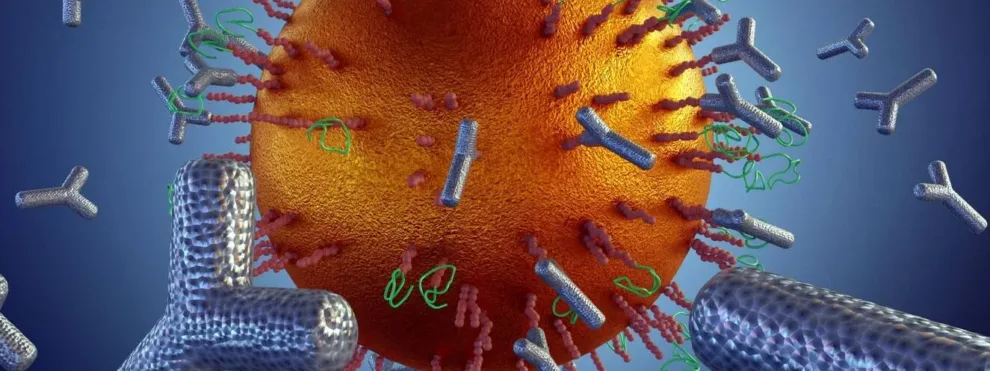 With recent guidance released from the FDA, there are changes for PKs (Pharmacokinetics) and ADCs (Antibody Drug Conjugates) that must be clearly understood before making decisions for your drug product testing. ADCs combine the target specificity of monoclonal antibodies with the anti-cancer activity of small molecule drug, also known as the payload.
With recent guidance released from the FDA, there are changes for PKs (Pharmacokinetics) and ADCs (Antibody Drug Conjugates) that must be clearly understood before making decisions for your drug product testing. ADCs combine the target specificity of monoclonal antibodies with the anti-cancer activity of small molecule drug, also known as the payload.
Careful consideration is needed regarding dosing strategies to understand the pharmacokinetic (PK) and pharmacodynamics (PD) of both the antibody and the payload. The payloads are small size and have cytotoxic characteristics. Fully understanding the PK and PD of an ADC can help you understand the safety and efficacy outcomes which allow you to determine the optimal dose of your ADC.
Changes for PK and ADCs
The FDA strongly encourages broad dose-ranging in First in Human studies and multiple dose levels for early clinical studies. The pharmacokinetic characteristics must be understood of ADCs and its constituent parts, and active metabolites, if any. For example if your ADC is in early clinical trials understanding the PK characteristics of the ADC concentration, the total antibody, and unconjugated payload may be required. For example, a PK analysis in early clinical trials would consist of three separate PK assays, antibody conjugated to the payload, the unconjugated payload, and the unconjugated antibody. By understanding how both conjugated and unconjugated constituents of the ADCs play a role early in development will help to determine the design of later studies. These actions will help address some of the items that have evolved with the recent FDA guidance.
When it comes to ADCs, the typical questions we receive from clients are related to whether the methods that we develop are sensitive enough to reach their limited detection (additionally, they are interested in range) required for their molecule. Well-understood sensitivity of not only the ADC as a whole, but also the ADC constituents will aid in further understanding of the pharmacokinetic characteristics of the ADC. PK assay development for the unconjugated payload should reach the sensitivity required to correlate to the clinical importance. If early clinical trials establish a sensitive PK assay and the unconjugated payload is undetectable in that assay, the FDA may not recommend measuring the unconjugated payload in future trials.
In developing the PK assays, there are a few options we have available. We can utilize typical methods like ELISA. When considering the best option for ADCs PK assay development, there are a number of factors to consider. Historically, ligand binding assays (LBAs) have been used as the primary assay platform, however, there have been recent advances in Liquid Chromatography (LC-MS). LBA is typically the preferred assay platform for the detection of both unconjugated antibody and ADC. This platform demonstrates good sensitivity, precision, and allows for high throughput during sample analysis. In order to develop a sensitive assay, anti-idiotype antibodies and antibodies developed against the payload are typically used.
One of the most common ligand binding platforms, MSD (Meso Scale Discovery), for instance, gives better sensitivity and a broader range for detection. MSD is a method similar to ELISA, except MSD uses electrochemiluminescence (ECL) as its detection technique, as opposed to the colorimetric reaction employed by ELISA. KCAS also offers in-house tagging of antibodies (biotin or SULFO TAG) for the detection of the analyte of interest depending on the PK assay platform.
ADCs are specifically designed to seek out cancer cells, deliver high concentrations of payload directly to the cells while limiting the danger to healthy cells. This concept of combining a small cancer targeting drug with an antibody emerged over two decades ago, but it has only been recently that this concept has seen rapid growth in the last few years. This has been seen mainly due to advancements in technology, improvement in safety and reduced side effects.
KCAS understands the challenges of ADAs and has the tools and knowledge to help you in designing PK assays for all components of your ADCs allowing you to set up future clinical trials for success.
KCAS is solely focused bioanalytical lab that decades of experience from our Executive Directors, to the bench Scientists working on your assays in the lab. KCAS is uniquely set up with a large molecule (Ligand Binding Assay group), small molecule, and a hybrid mass spec group. The different groups within KCAS work very closely together and can assist with troubleshooting and optimizing assays while providing insight and expertise to design PK methods needed for your study to ensure the data will provide you with information your need to move to the next phase of drug development.
If you have any questions about these services or any others offered by KCAS, please use the form below. Thank you!

